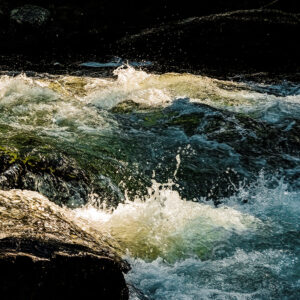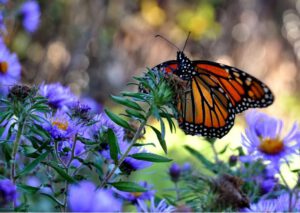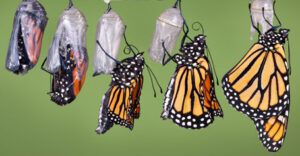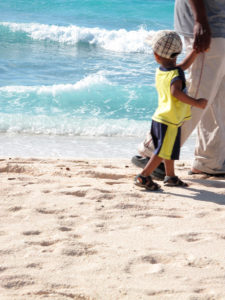 I am increasingly alarmed about the climate emergency. I find it difficult to watch others engage in behaviours which we know contribute to the problems: for example, unnecessary single-use plastics, and idling vehicles. People say: “What I do doesn’t make a difference.” or “What’s the point, we are too far gone.” I find that troubling. I care about what is happening for future generations.
I am increasingly alarmed about the climate emergency. I find it difficult to watch others engage in behaviours which we know contribute to the problems: for example, unnecessary single-use plastics, and idling vehicles. People say: “What I do doesn’t make a difference.” or “What’s the point, we are too far gone.” I find that troubling. I care about what is happening for future generations.
I was becoming bolder; in particular asking people who were idling in their cars to turn them off. In one instance a school bus driver was sitting with the bus going, windows down. It was beside a park where groups of day camp children were playing. None were on their way to this bus, which was waiting for them. When I brought it to the driver’s attention and asked if he himself had children. He replied “Yes, I just wasn’t thinking. Thank you.” He turned the motor off. Emboldened by such responses, I found myself speaking to others.
Recently, slowing my bike to turn at the top of my street, a youngish black woman sits in an idling SUV with her windows open. I nicely ask if she might turn off the ignition to reduce pollution.
“We all need to be aware of contributing to pollution and climate change.” I add. “Isn’t it just lovely that your white privilege affords you the opportunity to worry about climate change. You have no idea! I don’t even know if my 17-year-old son will make it home tonight or be shot by police”, she replies.
She continues in anger to describe the whole back community as “still slaves of you white people, many struggling just to put food on the table. These are our issues. You have no idea from your place of luxury and privilege.”
I am quiet, stunned and silenced. She continues for what feels like 15 minutes. I listen to the far-ranging comments about how black slaves still exist as “they” continue to do “our” dirty-work. In spite of her anger, I hear her pain and truth. A couple of times I am moved to tears: compassion for her and all people who have suffered at the hands of white Europeans; shame at my superior sounding attitude towards the needs of mother earth.
I need to keep going. She shows no sign of letting up. I ask her name, which she tells me. “That’s a beautiful name,” I say, “I need to go now.”
I ride away humbled, challenged. Her rage palpable, valid. I wonder what lies just under the surface of our “civilized society”. The increase in the verbiage and actions of white supremacists among us is alarming.
Significantly, this was the first time I have felt first-hand what it feels like to be dismissed; the recipient of another’s rage, maybe hated, just because of my skin colour. That alone marks me as privileged. It is because I am a white woman. Earlier in my life when struggling with being a woman in a male dominated patriarchal world, I thought possibly my experience was like that of a black person. I know that this is not the case. I am privileged because I am white. I live in a society that remains systematically racist.
Climate justice, racial justice, and economic justice. Maybe we can’t have one on this planet without the others.
All posts by Anne Simmonds
Holy Week Reflection
 I was thirty years old. My then husband and I were in a couple’s therapy weekend. The leader asked for a volunteer couple to do a communications exercise in the group. The task was to stand apart and move to where we felt comfortable enough to name an issue in the relationship. My husband stood at one end of the room, I at the other. As we moved closer, attempting to speak, something stirred in me and I began to cry; tears turned to sobs. The group silently witnessed my pain. Engulfed in their support, my inner landscape turned from one of deep hurt and pain to inexplicable joy – a feeling of being deeply loved and accepted at the core of my being. Even though I had been taught all my life that God loved me, this was the first time that I felt it, no, KNEW IT, in the depths of my being.
I was thirty years old. My then husband and I were in a couple’s therapy weekend. The leader asked for a volunteer couple to do a communications exercise in the group. The task was to stand apart and move to where we felt comfortable enough to name an issue in the relationship. My husband stood at one end of the room, I at the other. As we moved closer, attempting to speak, something stirred in me and I began to cry; tears turned to sobs. The group silently witnessed my pain. Engulfed in their support, my inner landscape turned from one of deep hurt and pain to inexplicable joy – a feeling of being deeply loved and accepted at the core of my being. Even though I had been taught all my life that God loved me, this was the first time that I felt it, no, KNEW IT, in the depths of my being.
The central story of our faith which we celebrate at the time of year when mother earth is bursting with new life, is about death and re-birth. I notice, both in our celebration and life experience we are quick to move through, even gloss over, the hard parts of the story in the same way we wish to avoid winter. In the garden, Jesus is “sorrowful unto death”. From an expression of sadness, he moves to anger at the disciples who are unable to witness his pain. Turning to the one he calls “Father”, he bargains, but then must surrender – “not my will but yours.” How often we must come to this place when we have done all we can to change or reverse a difficult situation, and simply accept what is – the things we cannot change, such as illness, death and many others.
On the cross Jesus cries: “My God, why have you forsaken me?” He knows that deep place of desolation, of feeling completely abandoned. I expect most of us have been at there at some point. This is also the place where people of faith might walk away – “There is no God,” they say – “What kind of God would allow this?”
The next part of the story we avoid – not only does Jesus die, but the story tells us he ‘descends into’ hell, where he spends three days. Whether you understand this metaphorically or literally, the meaning is the same – Hell is hell! Three days symbolizes a long time in a very lonely place.
 Like the caterpillar who must remain in the chrysalis until the appointed time, it is only by staying long enough that we come to what Jan Hatanaka calls an “epiphany of despair”1, and through that, to new life; hence the butterfly as symbol of Easter and resurrection. Barbara Brown Taylor writes: “It is the inability to bear dark emotions that causes many of our most significant problems, and not the emotions themselves.” She continues “I learned that sadness does not sink a person; it is the energy a person spends trying to avoid sadness that does that.”2 “Each time we trust the dying, we are led to a deeper level.”3
Like the caterpillar who must remain in the chrysalis until the appointed time, it is only by staying long enough that we come to what Jan Hatanaka calls an “epiphany of despair”1, and through that, to new life; hence the butterfly as symbol of Easter and resurrection. Barbara Brown Taylor writes: “It is the inability to bear dark emotions that causes many of our most significant problems, and not the emotions themselves.” She continues “I learned that sadness does not sink a person; it is the energy a person spends trying to avoid sadness that does that.”2 “Each time we trust the dying, we are led to a deeper level.”3
That moment a little over forty years ago planted the seeds of what became a career change from nursing to ministry. It was the first of many personal death and resurrection experiences. These have been pivotal in my life, and I regret none of them, even though at the time I would have wished, like Jesus, for “the cup” to be taken from me.
The invitation is this: the next time you find yourself in this cycle of death and re- birth, and it happens with any significant loss or change in our life, take the time you need to honour all parts of the process long enough for the epiphany of wisdom to emerge.
1. Hatanaka, Jan, The Choice, Finding Life in the Face of Adversity 2011.
2. Brown Taylor, Barbara, Learning to Walk in the Dark, Harpur One, page 78 and 80.
3. Rohr, Richard, Just This, CAC Publishing, page79.
Images courtesy of Jim Ellis
What Good Is It?
 What good is it to me if this eternal birth of the divine Son
What good is it to me if this eternal birth of the divine Son
takes place unceasingly, but does not take place within myself?
What good is it to me if Mary is full of grace
And if I am not also full of grace?
What good is it to me for the Creator to give birth to his/her Son
If I do not also give birth to him
In my time and my culture?
Meister Eckhart
But Mary treasured all these words
and pondered them in her heart.
Luke 2:19
My almost four-year-old granddaughter tells me she is afraid of loud noises.
“Which ones,” I ask.
“Thunder” she responds. I reassure her, probably foolishly, that in winter we have snow storms but not thunder.
Last spring an old tree across from their house came down, bringing with it two large concrete hydro poles, with part of the tree landing on the neighbour’s car. The power lines lay across their property rather than keeping the lights on inside. Her mother had just come up the front walk.
In the night during at least two of the loud thunder and lightning storms last summer, I lay awake in tears. Not because I don’t like loud noises. I was afraid for my grandchildren, and yours, or your future grandchildren, and theirs. What kind of environment are we are leaving them? Individually and collectively we do not seem to have the will to do the hard things necessary to ensure the comfortable survival of humans on the planet. I do what I can; ride my bike, limit unnecessary purchases, recycle. But I also love to travel and I know that air travel is a big polluter.
Mary “pondered” these things “in her heart.” She probably did not want to say “yes” to the request to birth “the Christ”. What does it mean for me, for you, to birth the Holy in our time and place? Can Mary’s “yes” be my “yes?” That is the invitation at the heart of the ancient story.
I’m listening to the hopeful energy of our young people – the numerous “Christ” children already born into what I pray will be a world able to support their lives. And I’m going to start buying carbon offsets for my flying habit.
